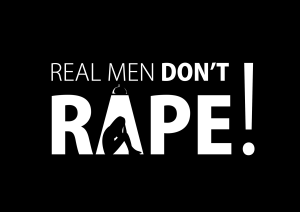Unfortunately, as a psychologist who specializes in the psychology of sexual abuse, I can think of quite a few reasons why it’s relatively easy for a sex offender to get away with their offense. In this video, I’d like to focus on what I see as one of the main problems, and I’d like to tell you a couple of things about sex offenders that probably no one’s ever told you before.
I want to be really clear that the group of people that we should all hold responsible for sexual abuse are the abusers, the sex offenders. But there’s a group of people who are unwittingly facilitating their behavior; they’re helping them get away with it. And that group of people includes me and you.
All of us are quite understandably frightened about sexual abuse. It’s the kind of crime that is terrifying to think about. And when I’m frightened by something, I want to do whatever I can to get rid of that fear. I want to feel like I’m back in control again.
In the case of sexual abuse, one of the things that I can do is focus on the aspects of sexual abuse that make me feel like I am in control. So I focus on the stranger, on the dangerous person hanging around the alleyway late at night, on the pedophile who’s in the playground. Focusing on that particular type of offender makes me feel like I’m in control because I feel like there’s something that I can do about it. In order to avoid sexual abuse, all I need to do is to avoid them and teach the people that I love to avoid them, too.
While it’s completely understandable that all of us would like a sense of control when it comes to something as scary as sexual abuse, our willful blindness to the truth creates a smoke-screen. It’s a smoke-screen that helps sex offenders continue to offend undetected, and it’s a smoke-screen that chokes their victims and makes us deaf to their words.
If we want to reduce the prevalence and impact of sexual abuse, that means that more of us need to open our eyes to the reality of sexual abuse. So I want to talk to you about two different types of sex offender that maybe you’ve never thought about before.
The first sex offender I want to talk to you about is the sex offender who would like to get away with their offense.
When we focus on the stranger, we’re thinking about somebody who attacks their victims in a public place. The sex offender who’d like to get away with their offense is very unlikely to commit that type of offense. When you attack somebody in public, you risk somebody else intervening whilst you’re committing your offense. The victim of that crime is very likely to report it to the police, and when the police investigate, they will have an evidence rich case. There be CC TV and witnesses. There are likely to be injuries, DNA evidence. They’re going to have public support to try and catch this dangerous criminal, and when the jury hears evidence of this case, they’re unlikely to struggle to return a verdict of guilty.
So the sex offender who would like to get away with their offense is likely to use very different tactics. They’re going to select a victim that they already have easy access to, somebody who already trusts them, someone who trusts them enough to happily go with them to a location where the sex offender can commit their offense without anybody else interrupting them.
The sex offender who wants to get away with their offense is unlikely to use violence, because injuries can be used as evidence. They’re also unlikely to need to use violence, because most people when they’re attacked freeze and offer no physical resistance.
After the offense, the sex offender who wants to get away with their offense will try to confuse, intimidate, or manipulate their victim so that they don’t report the crime to the police. They will try to convince them that what happened wasn’t a sex offense. They will try to convince them that what happened was the victim’s fault.
In case the victim does choose to report to the police, the sex offender who wants to make sure they get away with their offense will select a victim that other people will struggle to believe. Maybe they won’t believe them, because they were taking drugs or alcohol, maybe they won’t believe them because they have learning difficulties, or they’re otherwise vulnerable. Maybe they won’t believe them, because they’ve tried to report sexual abuse before, and no one believed them that time.
The second type of sex offender that I would like to talk to you about is the sex offender who isn’t ready to admit to themselves that they are a sex offender.
Admitting to yourself that you’ve committed a sex offense is a psychologically very difficult thing to do because it could be a huge threat to your self-concept. We all like to think of ourselves as good people; sex offenders are no different to anybody else in this respect. So this type of offender will dismiss, minimize, and normalize their offending behavior. They will tell themselves, “But this is what everybody else does.”
This type of offender is very unlikely to attack somebody in a public place — because if you commit that type of offense, it would be very hard to tell yourself that you are doing anything other than committing a sex offense. So this particular type of offender is also going to select a victim that they already have easy access to, somebody who trusts them enough to go to a location where they can commit the offense without anybody else intervening.
They’re likely to use drugs and alcohol to lower their own inhibitions as well as the inhibitions of their victim. They’re also not likely to use violence because they’re trying to convince themselves that what they’re doing is having normal sex.
After the offense, this type of offender is likely to be very charming to their victim because they’re going to be trying to convince both themselves and their victim that what just happened wasn’t a sex offense. If any of their victims ever report the crime to the police, the sex offender who isn’t ready to admit to themselves that they are a sex offender is likely to be shocked because the lie they’ve been telling themselves all of this time is that what they’re doing is normal. And if you’ve been telling yourself that lie for 20 years, that probably has become your reality.
If we think about these two different types of sex offender, and we think about our smoke-screen, we can see that by only focusing on the aspects of sexual abuse that make us feel in control, by only focusing on the stranger, we are willfully blind to the sex offender who wants to get away with their offense, and we are helping the sex offender who isn’t ready to admit to themselves that they are a sex offender by colluding with their story. When this particular sex offender hears our stories about monsters in alleyways, all that does is reassure them that what they’re doing is normal.
If we want to reduce the prevalence and impact of sexual abuse in society, that means that more of us need to open our eyes to the reality of sexual abuse. Doing so won’t be easy, but if together we can get rid of the smoke-screen, we can make life much harder for sex offenders, we can make life much better for their victims, and we can make life safer for you and me. If you’d like to play your part in getting rid of the smoke-screen, please share this video.




















